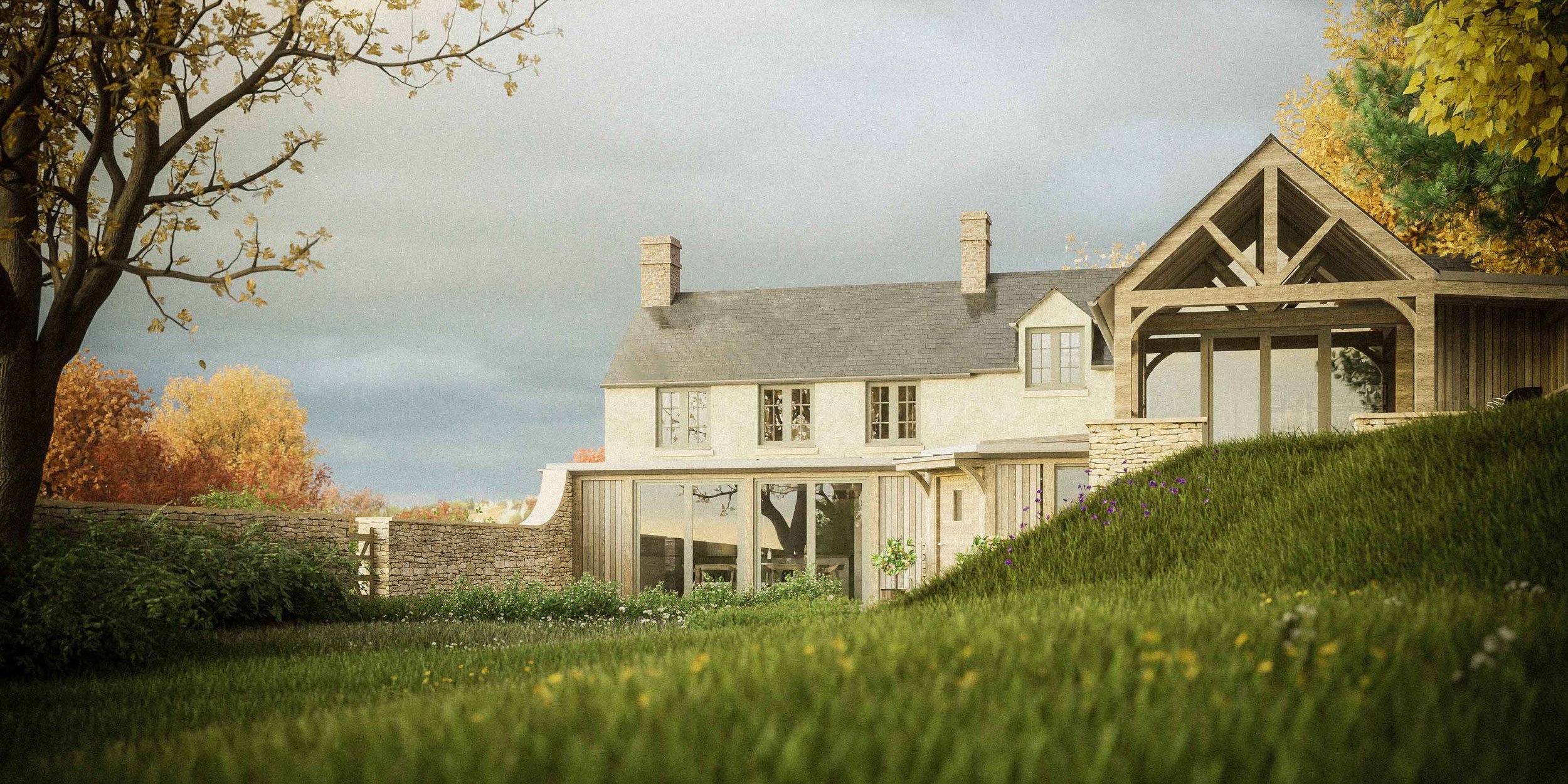
Creative & Sustainable Design for Residential Projects
Joshua Hovey is a RIBA Chartered Architect & Certified Passivhaus Designer, Serving Somerset, Gloucestershire and Surrounding Areas.
Sustainable & Innovative
New-Build
We help self-builders looking to design their dream eco-home, and land owners looking to maximise the potential of their plot. We have a proven track record of securing planning permission within challenging design constraints such as conservation areas, national parks, AONBs and near listed buildings.
Contemporary Extensions
We design beautiful contemporary extensions. Transform your living space by adding natural light, improving the connection with the outdoors and creating harmony between spaces.
Listed and Heritage Property Alterations
Do you have a listed building or period property which lacks natural light, feels disconnected from the outside and has poor flow between living spaces? We are experts at turning period properties into functional homes, customised for modern living.
Sensitively Designed Barn Conversions
We are architects skilled at working with listed buildings such as barn conversions, in conservation areas and AONBs and with complex design constraints. Let us help you to make the best use of your existing building.
Architect for Residential | Joshua Hovey Architects
5 Key Design Considerations When Planning a Residential Project
Defining Your Lifestyle Needs and Objectives
When planning a residential project, the first key consideration is to clearly define your lifestyle needs and objectives. Think about how you use your current space and what changes would enhance your daily life. Whether it’s creating more living space, improving functionality, or incorporating specific design elements, understanding your personal requirements will help your architect for residential design tailor the project to your needs. A well-defined brief ensures that the final design meets your expectations and supports your lifestyle.
Establishing a Realistic Budget
Setting a realistic budget is crucial for any residential project. Determine how much you are willing to spend and allocate funds for various aspects such as design, construction, and materials. An architect for residential projects can help you understand potential costs and work within your financial constraints. By establishing a clear budget from the outset, you can avoid unexpected expenses and ensure that your project progresses smoothly without financial strain.
Choosing the Right Architect for Residential Design
Selecting the right architect for residential design is a pivotal decision. Look for an architect who has experience with similar projects and a portfolio that aligns with your style and vision. Check their credentials, reviews, and past work to ensure they have the expertise to handle your project effectively. A skilled architect for residential design will not only bring your vision to life but also provide valuable insights and solutions throughout the design and construction process.
Understanding Local Building Regulations
Before starting your residential project, familiarize yourself with local building regulations and planning requirements. These regulations can impact various aspects of your design, including structural changes, energy efficiency standards, and safety codes. An experienced architect for residential design will guide you through these regulations, ensuring that your project complies with all local laws and avoids potential delays or issues during the approval process.
Integrating Sustainability and Energy Efficiency
Incorporating sustainability and energy efficiency into your residential project is increasingly important. Consider features such as high-performance insulation, energy-efficient windows, and sustainable materials. Discuss these options with your architect for residential design to ensure that your project minimizes environmental impact and reduces long-term energy costs. Integrating eco-friendly practices not only benefits the environment but also enhances the overall efficiency and value of your home.
By focusing on these five key design considerations, you can effectively plan your residential project. Defining your lifestyle needs, establishing a realistic budget, choosing the right architect for residential design, understanding local regulations, and integrating sustainability are all essential steps. Working with an experienced architect ensures that these considerations are expertly managed, resulting in a home that is both functional and aligned with your vision.









